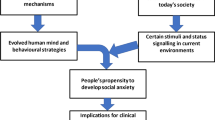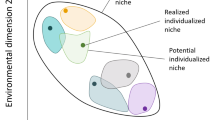Abstract
Social development is crucial in the ontogeny of animals living in complex societies and has lasting consequences in adulthood. Spotted hyenas (Crocuta crocuta) live in fission-fusion societies as complex as those of cercopithecine primates. The social positions adult hyenas hold within their groups are complex and varied, but little is known about how those positons emerge and change over the course of development. Using social network analysis (SNA), we tested predictions of hypotheses suggesting that sex and dominance status affect the social network positions of young hyenas across three stages of ontogeny: (1) while living at the communal den, (2) den independent but pre-reproductive, and (3) early adulthood. By examining rates at which hyenas were found alone and their association networks, aggression networks, and affiliation networks, we observed striking changes in individuals’ network positions across ontogeny, as well as pronounced sex differences. With the exception of rates at which individuals were found alone, which increased over ontogeny, most social network position metrics decreased greatly from infancy to adulthood. However, females showed considerably more rank-related variation in this trajectory than did males. Overall, social rank had stronger effects on the development of social network positions in females than males. Thus, females and males have different social development trajectories that appear to prepare them for their different respective futures of integrating into their natal clan or dispersing to a new one.
Significance statement
Social development is difficult to study, particularly in long-lived gregarious mammals, so little is known about the variables shaping the emergence during ontogeny of social roles played by adults. We used social network analysis to investigate how sex and rank affect the social positions of maturing spotted hyenas as their positions change across ontogenetic development. Females develop more complex social positions than males early in life, with strategies that vary with their dominance status. Although males are just as well connected to group-mates as females when they are cubs, they generally disengage from the natal clan as they mature; males clearly do not disperse because they are aggressively expelled from their natal group. Our data suggest for the first time that social development appears to prepare females and males for their alternative futures of philopatry or dispersal.







Similar content being viewed by others
References
Altmann J (1974) Observational study of behavior: sampling methods. Behaviour 49(3):227–267. https://doi.org/10.1163/156853974X00534
Anderson CO, Mason WA (1978) Competitive social strategies in groups of deprived and experienced rhesus monkeys. Dev Psychobiol 11(4):289–299. https://doi.org/10.1002/dev.420110402
Aplin LM, Farine DR, Morand-Ferron J, Cole EF, Cockburn A, Sheldon BC (2013) Individual personalities predict social behaviour in wild networks of great tits (Parus major). Ecol Lett 16(11):1365–1372. https://doi.org/10.1111/ele.12181
Archie EA, Chiyo PI (2012) Elephant behaviour and conservation: social relationships, the effects of poaching, and genetic tools for management. Mol Ecol 21(3):765–778. https://doi.org/10.1111/j.1365-294X.2011.05237.x
Archie EA, Tung J, Clark M, Altmann J, Alberts SC (2014) Social affiliation matters: both same-sex and opposite-sex relationships predict survival in wild female baboons. Proc R Soc B 281(1793):20141261. https://doi.org/10.1098/rspb.2014.1261
Barabasi A, Albert R (1999) Emergence of scaling in random networks. Science 286(5439):509–512
Barocas A, Ilany A, Koren L, Kam M, Geffen E (2011) Variance in centrality within rock hyrax social networks predicts adult longevity. PLoS One 6(7):e22375. https://doi.org/10.1371/journal.pone.0022375
Belsky J, Steinberg L, Draper P (1991) Childhood experience, interpersonal development, and reproductive strategy: an evolutionary theory of socialization. Child Dev 62(4):647–670. https://doi.org/10.2307/1131166
Belsky J, Vandell DL, Burchinal M, Clarke-Stewart KA, McCartney K, Owen MT, The NICHD Early Child Care Research Network (2007) Are there long-term effects of early child care? Child Dev 78(2):681–701. https://doi.org/10.1111/j.1467-8624.2007.01021.x
Bercovitch FB (1991) Social stratification, social strategies, and reproductive success in primates. Ethol Sociobiol 12(4):315–333. https://doi.org/10.1016/0162-3095(91)90023-J
Berman CM (1982) The ontogeny of social relationships with group companions among free-ranging infant rhesus monkeys. II. Differentiation and attractiveness. Anim Behav 30(1):149–162. https://doi.org/10.1016/S0003-3472(82)80250-9
Boydston EE, Morelli TL, Holekamp KE (2001) Sex differences in territorial behavior exhibited by the spotted hyena (Hyaenidae, Crocuta crocuta). Ethology 107(5):369–385. https://doi.org/10.1046/j.1439-0310.2001.00672.x
Boydston EE, Kapheim KM, Van Horn RC, Smale L, Holekamp KE (2005) Sexually dimorphic patterns of space use throughout ontogeny in the spotted hyena (Crocuta crocuta). J Zool 267(03):271–281. https://doi.org/10.1017/S0952836905007478
Brent LJN, Ruiz-Lambides A, Platt ML (2017) Family network size and survival across the lifespan of female macaques. Proc R Soc B 284(1854):20170515. https://doi.org/10.1098/rspb.2017.0515
Butts CT (2008) Network: a package for managing relational data in R. J Stat Softw 24:1–36
Butts CT (2015) Network: classes for relational data. https://cran.r-project.org/web/packages/network/vignettes/networkVignette.pdf
Cairns SJ, Schwager SJ (1987) A comparison of association indices. Anim Behav 35(5):1454–1469. https://doi.org/10.1016/S0003-3472(87)80018-0
Campbell CJ, Fuentes A, MacKinnon K, Bearder SK, Stumpf RM (2011) Primates in perspective. Oxford University Press, New York
Chiyo PI, Moss CJ, Alberts SC (2012) The influence of life history milestones and association networks on crop-raiding behavior in male African elephants. PLoS One 7(2):e31382. https://doi.org/10.1371/journal.pone.0031382
Crockford C, Wittig RM, Whitten PL, Seyfarth RM, Cheney DL (2008) Social stressors and coping mechanisms in wild female baboons (Papio hamadryas ursinus). Horm Behav 53(1):254–265. https://doi.org/10.1016/j.yhbeh.2007.10.007
Croft DP, James R, Krause J (2008) Exploring animal social networks. Princeton University Press, Princeton. https://doi.org/10.1515/9781400837762
Croft DP, Krause J, Darden SK (2009) Behavioural trait assortment in a social network: patterns and implications. Behav Ecol Sociobiol 63(10):1495–1503. https://doi.org/10.1007/s00265-009-0802-x
East ML, Hofer H (2001) Male spotted hyenas (Crocuta crocuta) queue for status in social groups dominated by females. Behav Ecol 12(5):558–568. https://doi.org/10.1093/beheco/12.5.558
Ellis L (1995) Dominance and reproductive success among nonhuman animals: a cross-species comparison. Ethol Sociobiol 16(4):257–333. https://doi.org/10.1016/0162-3095(95)00050-U
Evans KE, Harris S (2008) Adolescence in male African elephants, Loxodonta africana, and the importance of sociality. Anim Behav 76(3):779–787. https://doi.org/10.1016/j.anbehav.2008.03.019
Fournier DA, Skaug HJ, Ancheta J, Ianelli J, Magnusson A, Maunder MN, Nielsen A, Sibert J (2012) AD Model Builder: using automatic differentiation for statistical inference of highly parameterized complex nonlinear models. Optim Method Softw 27(2):233–249. https://doi.org/10.1080/10556788.2011.597854
Frank LG (1986) Social organization of the spotted hyaena (Crocuta crocuta). I. Demography. Anim Behav 34(5):1500–1509. https://doi.org/10.1016/S0003-3472(86)80220-2
Frank LG, Glickman SE, Licht P (1991) Fatal sibling aggression, precocial development, and androgens in neonatal spotted hyenas. Science 252(5006):702–704. https://doi.org/10.1126/science.2024122
Granovetter MS (1973) The strength of weak ties. Am J Sociol 78(6):1360–1380. https://doi.org/10.1086/225469
Hamede RK, Bashford J, McCallum H, Jones M (2009) Contact networks in a wild Tasmanian devil (Sarcophilus harrisii) population: using social network analysis to reveal seasonal variability in social behaviour and its implications for transmission of devil facial tumour disease. Ecol Lett 12(11):1147–1157. https://doi.org/10.1111/j.1461-0248.2009.01370.x
Handcock MS, Hunter DR, Butts CT, Goodreau SM, Morris M (2008) Statnet: software tools for the representation, visualization, analysis and simulation of network data. J Stat Softw 24(1):1548–7660
Hanneman RA, Riddle M (2005) Introduction to social network methods. University of California, Riverside
Hinde RA (1976) Interactions, relationships and social structure. Man 11(1):1–17. https://doi.org/10.2307/2800384
Hinde RA, Atkinson S (1970) Assessing the roles of social partners in maintaining mutual proximity, as exemplified by mother-infant relations in rhesus monkeys. Anim Behav 18:169–176. https://doi.org/10.1016/0003-3472(70)90087-4
Hobson EA, DeDeo S (2015) Social feedback and the emergence of rank in animal society. PLoS Comput Biol 11(9):e1004411. https://doi.org/10.1371/journal.pcbi.1004411
Hobson EA, Avery ML, Wright TF (2013) An analytical framework for quantifying and testing patterns of temporal dynamics in social networks. Anim Behav 85(1):83–96. https://doi.org/10.1016/j.anbehav.2012.10.010
Hock K, Ng KL, Fefferman NH (2010) Systems approach to studying animal sociality: individual position versus group organization in dynamic social network models. PLoS One 5(12):e15789. https://doi.org/10.1371/journal.pone.0015789
Hofer H, East ML (2003) Behavioral processes and costs of co-existence in female spotted hyenas: a life history perspective. Evol Ecol 17(4):315–331. https://doi.org/10.1023/A:1027352517231
Holekamp KE, Smale L (1991) Dominance acquisition during mammalian social development: the “inheritance” of maternal rank. Am Zool 31(2):306–317. https://doi.org/10.1093/icb/31.2.306
Holekamp KE, Smale L (1993) Ontogeny of dominance in free-living spotted hyaenas: juvenile rank relations with other immature individuals. Anim Behav 46(3):451–466. https://doi.org/10.1006/anbe.1993.1214
Holekamp KE, Smale L (1998a) Behavioral development in the spotted hyena. Bioscience 48(12):997–1005. https://doi.org/10.2307/1313456
Holekamp KE, Smale L (1998b) Dispersal status influences hormones and behavior in the male spotted hyena. Horm Behav 33(3):205–216. https://doi.org/10.1006/hbeh.1998.1450
Holekamp KE, Smale L, Szykman M (1996) Rank and reproduction in the female spotted hyaena. J Reprod Fertil 108(2):229–237. https://doi.org/10.1530/jrf.0.1080229
Holekamp KE, Cooper SM, Katona CI, Berry NA, Frank LG, Smale L (1997) Patterns of association among female spotted hyenas (Crocuta crocuta). J Mammal 78(1):55–64. https://doi.org/10.2307/1382638
Holekamp KE, Smith JE, Strelioff CC, Van Horn RC, Watts HE (2012) Society, demography and genetic structure in the spotted hyena. Mol Ecol 21(3):613–632. https://doi.org/10.1111/j.1365-294X.2011.05240.x
Holekamp KE, Swanson EM, Van Meter PE (2013) Developmental constraints on behavioural flexibility. Philos T Roy Soc B 368(1618):20120350. https://doi.org/10.1098/rstb.2012.0350
Holekamp KE, Dantzer B, Stricker G, Yoshida KCS, Benson-Amram S (2015) Brains, brawn and sociality: a hyaena’s tale. Anim Behav 103:237–248. https://doi.org/10.1016/j.anbehav.2015.01.023
Höner OP, Wachter B, Hofer H, Wilhelm K, Thierer D, Trillmich F, Burke T, East ML (2010) The fitness of dispersing spotted hyaena sons is influenced by maternal social status. Nat Commun 1:60–67
Joffe TH (1997) Social pressures have selected for an extended juvenile period in primates. J Hum Evol 32(6):593–605. https://doi.org/10.1006/jhev.1997.0140
Kruuk H (1972) The spotted hyena: a study of predation and social behavior. University of Chicago Press, Chicago
Kurvers RHJM, Adamczyk VMAP, van Wieren SE, Prins HHT (2011) The effect of boldness on decision-making in barnacle geese is group-size-dependent. Proc R Soc Lond B 278(1714):2018–2024. https://doi.org/10.1098/rspb.2010.2266
Lehmann J, Ross C (2011) Baboon (Papio anubis) social complexity—a network approach. Am J Primatol 73(8):775–789. https://doi.org/10.1002/ajp.20967
Makagon MM, McCowan B, Mench JA (2012) How can social network analysis contribute to social behavior research in applied ethology? Appl Anim Behav Sci 138(3-4):152–161. https://doi.org/10.1016/j.applanim.2012.02.003
Mason WA (1968) Early social deprivation in nonhuman primates: implications for human behavior. In: Glass DS (ed) Environmental influences. Rockefeller University Press, New York, pp 70–101
Massen JJM, Koski SE (2014) Chimps of a feather sit together: chimpanzee friendships are based on homophily in personality. Evol Hum Behav 35(1):1–8. https://doi.org/10.1016/j.evolhumbehav.2013.08.008
McCowan B, Beisner BA, Capitanio JP, Jackson ME, Cameron AN, Seil S, Atwill ER, Hsieh F (2011) Network stability is a balancing act of personality, power, and conflict dynamics in rhesus macaque societies. PLoS One 6(8):e22350. https://doi.org/10.1371/journal.pone.0022350
McDonald DB (2007) Predicting fate from early connectivity in a social network. Proc Natl Acad Sci USA 104(26):10910–10914. https://doi.org/10.1073/pnas.0701159104
Moffitt TE, Caspi A, Belsky J, Silva PA (1992) Childhood experience and the onset of menarche: a test of a sociobiological model. Child Dev 63(1):47–58. https://doi.org/10.2307/1130900
Newman MEJ (2003) The structure and function of complex networks. SIAM Rev 45(2):167–256. https://doi.org/10.1137/S003614450342480
Onyango PO, Gesquiere LR, Altmann J, Alberts SC (2012) Testosterone positively associated with both male mating effort and paternal behavior in savanna baboons (Papio cynocephalus). Horm Behav 63:430–436
Onyango PO, Gesquiere LR, Altmann J, Alberts SC (2013) Puberty and dispersal in a wild primate population. Horm Behav 64(2):240–249. https://doi.org/10.1016/j.yhbeh.2013.02.014
Pereira ME (1988) Effects of age and sex on intra-group spacing behaviour in juvenile savannah baboons, Papio cynocephalus cynocephalus. Anim Behav 36(1):184–204. https://doi.org/10.1016/S0003-3472(88)80262-8
Pinter-Wollman N, Hobson EA, Smith JE, Edelman AJ, Shizuka D, de Silva S, Waters JS, Prager SD, Sasaki T, Wittemyer G, Fewell J, McDonald DB (2014) The dynamics of animal social networks: analytical, conceptual, and theoretical advances. Behav Ecol 25(2):242–255. https://doi.org/10.1093/beheco/art047
Royle NJ, Pike TW, Heeb P, Richner H, Kölliker M (2012) Offspring social network structure predicts fitness in families. Proc R Soc Lond B 279(1749):4914–4922. https://doi.org/10.1098/rspb.2012.1701
Silk JB (2003) Social bonds of female baboons enhance infant survival. Science 302(5648):1231–1234. https://doi.org/10.1126/science.1088580
Silk JB, Samuels A, Rodman PS (1981) The influence of kinship, rank, and sex on affiliation and aggression between adult female and immature bonnet macaques (Macaca radiata). Behaviour 78(1):111–137. https://doi.org/10.1163/156853981X00284
Silk JB, Beehner JC, Bergman TJ, Crockford C, Engh AL, Moscovice LR, Wittig RM, Seyfarth RM, Cheney DL (2010) Strong and consistent social bonds enhance the longevity of female baboons. Curr Biol 20(15):1359–1361. https://doi.org/10.1016/j.cub.2010.05.067
Silk JB, Alberts SC, Altmann J, Cheney DL, Seyfarth RM (2012) Stability of partner choice among female baboons. Anim Behav 83(6):1511–1518. https://doi.org/10.1016/j.anbehav.2012.03.028
Skaug H, Fournier D, Bolker BM, Nielsen A, Magnusson A (2016) Generalized linear mixed models using AD model builder. https://rdrr.io/rforge/glmmADMB/
Smale L, Nunes S, Holekamp KE (1997) Sexually dimorphic dispersal in mammals: patterns, causes, and consequences. Adv Stud Behav 26:181–250. https://doi.org/10.1016/S0065-3454(08)60380-0
Smith JE, Memenis SK, Holekamp KE (2007) Rank-related partner choice in the fission–fusion society of the spotted hyena (Crocuta crocuta). Behav Ecol Sociobiol 61(5):753–765. https://doi.org/10.1007/s00265-006-0305-y
Smith JE, Kolowski JM, Graham KE, Dawes SE, Holekamp KE (2008) Social and ecological determinants of fission–fusion dynamics in the spotted hyaena. Anim Behav 76(3):619–636. https://doi.org/10.1016/j.anbehav.2008.05.001
Smith JE, Powning KS, Dawes SE, Estrada JR, Hopper AL, Piotrowski SL, Holekamp KE (2011) Greetings promote cooperation and reinforce social bonds among spotted hyaenas. Anim Behav 81(2):401–415. https://doi.org/10.1016/j.anbehav.2010.11.007
Stanton MA, Mann J (2012) Early social networks predict survival in wild bottlenose dolphins. PLoS One 7(10):e47508. https://doi.org/10.1371/journal.pone.0047508
Stanton MA, Gibson QA, Mann J (2011) When mum’s away: a study of mother and calf ego networks during separations in wild bottlenose dolphins (Tursiops sp.) Anim Behav 82(2):405–412. https://doi.org/10.1016/j.anbehav.2011.05.026
Suomi SJ (2005) Mother-infant attachment, peer relationships, and the development of social networks in rhesus monkeys. Hum Dev 48(1-2):67–79. https://doi.org/10.1159/000083216
Swanson EM, Dworkin I, Holekamp KE (2011) Lifetime selection on a hypoallometric size trait in the spotted hyena. Proc R Soc Lond B 278(1722):3277–3285. https://doi.org/10.1098/rspb.2010.2512
Swanson EM, McElhinny TL, Dworkin I, Weldele ML, Glickman SE, Holekamp KE (2013) Ontogeny of sexual size dimorphism in the spotted hyena (Crocuta crocuta). J Mammal 94(6):1298–1310. https://doi.org/10.1644/12-MAMM-A-277.1
Szykman M, Engh AL, Van Horn RC, Funk S, Scribner K, Holekamp KE (2001) Association patterns among male and female spotted hyenas (Crocuta crocuta) reflect male mate choice. Behav Ecol Sociobiol 50(3):231–238. https://doi.org/10.1007/s002650100356
Tanner JB, Zelditch ML, Lundrigan BL, Holekamp KE (2009) Ontogenetic change in skull morphology and mechanical advantage in the spotted hyena (Crocuta crocuta). J Morphol 271:353–365
Van Horn RC, McElhinny TL, Holekamp KE (2003) Age estimation and dispersal in the spotted hyena (Crocuta crocuta). J Mammal 84(3):1019–1030. https://doi.org/10.1644/BBa-023
Vandeleest JJ, Beisner BA, Hannibal DL, Nathman AC, Capitanio JP, Hsieh F, Atwill ER, McCowan B (2016) Decoupling social status and status certainty effects on health in macaques: a network approach. PeerJ 4:e2394. https://doi.org/10.7717/peerj.2394
Walker R, Burger O, Wagner J, Von Rueden CR (2006) Evolution of brain size and juvenile periods in primates. J Hum Evol 51(5):480–489. https://doi.org/10.1016/j.jhevol.2006.06.002
Watts HE, Tanner JB, Lundrigan BL, Holekamp KE (2009) Post-weaning maternal effects and the evolution of female dominance in the spotted hyena. Proc R Soc Lond B 276(1665):2291–2298. https://doi.org/10.1098/rspb.2009.0268
Wilson A, Krause S, Dingemanse NJ, Krause J (2013) Network position: a key component in the characterization of social personality types. Behav Ecol Sociobiol 67(1):163–173. https://doi.org/10.1007/s00265-012-1428-y
Acknowledgments
We thank the Kenyan National Commission for Science, Technology, and Innovation for permission to conduct this research and the Kenya Wildlife Service, Narok County Government and the Senior Warden of the Masai Mara National Reserve for assistance. We are indebted to all those who have contributed to long-term data collection on the Mara Hyena Project. Special thanks to T. Getty, L. Smale, J. Neal, and A. Wolfe for helpful comments along the way. We would also like to thank three very thoughtful anonymous reviewers for their comments. This research was supported by National Science Foundation Grants DEB1353110 and OISE1556407 to KEH, a Student Research Grant from the Animal Behavior Society to JWT, a Grant-in-Aid from the American Society of Mammalogists to JWT, and a Dissertation Continuation Fellowship to JWT from the College of Natural Science at Michigan State University.
Author information
Authors and Affiliations
Corresponding author
Ethics declarations
Conflict of interest
The authors declare that they have no conflict of interest.
Ethical approval
All procedures performed in studies involving animals were in accordance with the ethical standards of Michigan State University and following all applicable guidelines in Kenya. Ethical approval for use of animals in this study was issued by Michigan State University under IACUC approval no. 05/11-110-00 on 22 August 2013.
Additional information
Communicated by D. P. Croft
Electronic supplementary material
ESM 1
(DOCX 617 kb)
Rights and permissions
About this article
Cite this article
Turner, J.W., Bills, P.S. & Holekamp, K.E. Ontogenetic change in determinants of social network position in the spotted hyena. Behav Ecol Sociobiol 72, 10 (2018). https://doi.org/10.1007/s00265-017-2426-x
Received:
Revised:
Accepted:
Published:
DOI: https://doi.org/10.1007/s00265-017-2426-x




